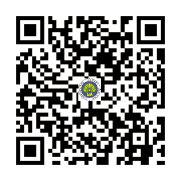Pengaruh project based learning Terhadap kemampuan berpikir kritis peserta didik Pada materi optik geometris SMA Laboratorium UM
DOI:
https://doi.org/10.17977/um067v1i7p539–547Keywords:
project based learning, kemampuan berpikir kritis, optik geometrisAbstract
Penelitian ini bertujuan mengetahui pengaruh Project Based Learning terhadap kemampuan berpikir kritis peserta didik pada materi optik geometris SMA Laboratorium UM. Jenis penelitian quasi experimental design dengan teknik post-test only design. Instrumen pengukuran terdiri dari 10 soal uraian dan rubrik keterlaksanaan pembelajaran. Hipotesis dalam penelitian ini adalah kemampuan berpikir kritis peserta didik yang belajar dengan Project Based Learning lebih tinggi daripada peserta didik yang belajar dengan Problem Based Learning. Hipotesis diuji dengan uji t dilanjutkan dengan Uji Scheffe. Hasil uji t menunjukkan bahwa terdapat perbedaan kemampuan berpikir kritis peserta didik yang belajar dengan Project Based Learning dan Problem Based Learning. Hasil Uji Scheffe menunjukkan bahwa kemampuan berpikir kritis peserta didik yang belajar dengan Project Based Learning lebih tinggi daripada peserta didik yang belajar dengan Problem Based Learning.
References
Agboeze, M. U., & Ugwoke, E. (2013). Enhancement of critical thinking skills of vocational and adult education students for entrepreneurship development in Nigeria. Journal of Education and Practice, 4(17).
Stella, C. (2005). Critical thinking skills: developing effective analysis and arguments. New York: Palcrave MacMillan Houndmills.
Ennis, R. (1997). Incorporating critical thinking in the curriculum: An introduction to some basic issues. Inquiry: Critical Thinking across the disciplines, 16(3), 1-9.
Eskrootchi, R., & Oskrochi, G. R. (2010). A study of the efficacy of project-based learning integrated with computer-based simulation-STELLA. J. Educ. Technol. Soc., 13(1), 236-245.
Facione, P. (1990). Critical thinking: A statement of expert consensus for purposes of educational assessment and instruction (The Delphi Report).
Hafizan, E., Halim, L., & Meerah, T. S. (2012). Perception, conceptual knowledge and competency level of integrated science process skill towards planning a professional enhancement programme. Sains Malaysiana, 41(7), 921-930.
Harun, B. Y. (2006). Project-Based Learning handbook “educating the millennial learner’’. Kuala Lumpur: Educational Technology Division Ministry of Education, 2, 5-10.
Hussain, S., Ahmed, S., Mubeen, S., & Tariq, S. (2011). The effectiveness of teaching physics through project method on academic achievement of students at secondary level-a case study. Journal of Education and Practice, 2(8), 28-35.
Kargar, F. R., Ajilchi, B., Goreyshi, M. K., & Noohi, S. (2013). Effect of creative and critical thinking skills teaching on identity styles and general health in adolescents. Procedia-Social and Behavioral Sciences, 84, 464-469.
Kubiatko, M., & Vaculová, I. (2011). Project-based learning: characteristic and the experiences with application in the science subjects. Energy Education Science and Technology Part B: Social and Educational Studies, 3(1), 65-74.
Luthvitasari, N., & Linuwih, S. (2012). Implementasi pembelajaran Fisika Berbasis Proyek terhadap keterampilan berpikir kritis, berpikir kreatif dan kemahiran generik sains. Journal of innovative Science education, 1(2).
Milner-Bolotin, M., & Svinicki, M. (2001). Teaching physics of everyday life: Project-based instruction and a collaborative work in undergraduate physics course for nonscience majors. Journal of the Scholarship of Teaching and Learning, 1(1), 25.
Masek, A., & Yamin, S. (2011). The effect of problem based learning on critical thinking ability: a theoretical and empirical review. International Review of Social Sciences and Humanities, 2(1), 215-221.
Miri, B., David, B. C., & Uri, Z. (2007). Purposely teaching for the promotion of higher-order thinking skills: A case of critical thinking. Research in science education, 37(4), 353-369.
Pendidikan, P. M., & Nomor, K. (69). Tahun 2013 tentang Kerangka Dasar dan Struktur Kurikulum Sekolah Menengah Atas. Madrasah Aliyah.
Redhana, I. W. (2012). Model pembelajaran berbasis masalah dan pertanyaan socratik untuk meningkatkan keterampilan berpikir kritis siswa. Jurnal Cakrawala Pendidikan, (3).
Sastrika, I. A. K., Sadia, W., & Muderawan, I. W. (2013). Pengaruh model pembelajaran berbasis proyek terhadap pemahaman konsep kimia dan keterampilan berpikir kritis. Jurnal Pendidikan dan Pembelajaran IPA Indonesia, 3(2).
Susilowati, I., Iswari, R. S., & Sukaesih, S. (2013). Pengaruh pembelajaran berbasis proyek terhadap hasil belajar siswa materi sistem pencernaan manusia. Journal of Biology Education, 2(1).
Tal, T., Krajcik, J. S., & Blumenfeld, P. C. (2006). Urban schools' teachers enacting project‐based science. Journal of Research in Science teaching, 43(7), 722-745.
Tamim, S. R., & Grant, M. M. (2013). Definitions and uses: Case study of teachers implementing project-based learning. Interdisciplinary Journal of problem-based learning, 7(2), 3.
Thomas, J. W. (2000). A review of research on project-based learning.
Yalcin, S. A., Turgut, U., & Büyükkasap, E. (2009). The effect of project based learning on science undergraduates’ learning of electricity, attitude towards physics and scientific process skills. International Online Journal of Educational Sciences, 1(1), 81-105.
Yance, R. D. (2013). Pengaruh penerapan model project based learning (PBL) terhadap hasil belajar fisika siswa kelas XI IPA SMA Negeri 1 Batipuh Kabupaten Tanah Datar. Pillar of Physics Education, 1(1).










1.png)
4.png)





